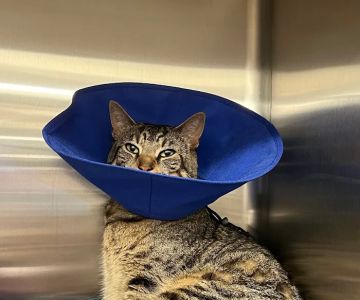Can Veterinary Professionals Get the COVID Vaccine? Everything You Need to Know
- COVID Vaccine Eligibility for Veterinary Professionals
- The Importance of Vaccinating Veterinary Staff
- How Veterinary Professionals Are Prioritized for the Vaccine
- Real-Life Examples of Veterinary Professionals Receiving the Vaccine
- Vaccine Availability for Veterinary Clinics and Animal Care Facilities
1. COVID Vaccine Eligibility for Veterinary Professionals
As the COVID-19 pandemic spread across the globe, essential workers in many fields, including healthcare and veterinary care, were prioritized for vaccination. Veterinary professionals, such as veterinarians, veterinary technicians, and animal care staff, were considered essential workers, especially given their role in ensuring the health and well-being of animals. But the question arises: can veterinary professionals get the COVID vaccine?
The answer is yes. Veterinary professionals were included in the early phases of vaccine distribution in many countries due to their direct exposure to animals, clients, and the general public. Since many veterinary clinics remained open throughout the pandemic, these professionals were at risk of both exposure to COVID-19 and spreading it, making vaccination crucial for their protection.
2. The Importance of Vaccinating Veterinary Staff
Vaccinating veterinary professionals is not only vital for their own health but also for the safety of the animals in their care. Veterinary clinics often deal with high-risk procedures and come into close contact with animals who may carry infectious diseases. As healthcare providers for pets and other animals, veterinarians must ensure that they remain healthy and can continue to provide essential services, especially during a pandemic.
Moreover, veterinarians and their staff frequently work in close quarters with pet owners, who may not always be aware of the risks posed by the virus. Vaccination of veterinary professionals helps reduce the chances of transmission between humans and animals, ensuring that animals continue to receive necessary medical care while preventing further spread of the virus.
3. How Veterinary Professionals Are Prioritized for the Vaccine
In the early stages of the vaccine rollout, many countries created specific tiers or phases for vaccine distribution. Veterinary professionals were prioritized for vaccination based on their proximity to public health risks and the essential services they provide. In the United States, for example, veterinary professionals were included in Phase 1B of the vaccination rollout due to their role in the community and their exposure to public-facing situations.
While the vaccination distribution process varied by country and region, many veterinary organizations advocated for their staff to be considered for priority vaccination. Organizations like the American Veterinary Medical Association (AVMA) played a critical role in raising awareness about the importance of vaccinating veterinary professionals and ensuring they received the same level of priority as human healthcare workers.
4. Real-Life Examples of Veterinary Professionals Receiving the Vaccine
Veterinary professionals across the globe have shared their experiences of receiving the COVID vaccine. Many veterinarians reported feeling a sense of relief and responsibility after being vaccinated, knowing that they were better protected against COVID-19 and could continue their work without the same level of fear. For example, Dr. Jane, a veterinarian from New York, shared her experience: “I was so relieved to get the vaccine. As someone who works in close contact with animals and their owners, I felt it was important for both my safety and the safety of the animals I care for.”
Other veterinary professionals echoed similar sentiments, highlighting the positive impact the vaccine had on their ability to continue providing essential care to animals without interruption. Vaccination allowed many veterinary clinics to remain open, keeping their essential services available to the community even during times of uncertainty.
5. Vaccine Availability for Veterinary Clinics and Animal Care Facilities
As the vaccine became more widely available, veterinary clinics and animal care facilities were able to obtain vaccines for their staff. In many regions, veterinary clinics were offered the opportunity to vaccinate their teams on-site, ensuring that staff members could quickly and safely receive the vaccine. This helped streamline the process and reduce the risk of exposure during the vaccination process itself.
For pet owners concerned about the health and safety of their veterinarians, it’s important to note that vaccinated veterinary professionals are better equipped to prevent the spread of COVID-19 while continuing to provide essential services. Additionally, pet owners are encouraged to support local veterinary clinics by maintaining communication and following any health protocols recommended by their veterinary professionals.











